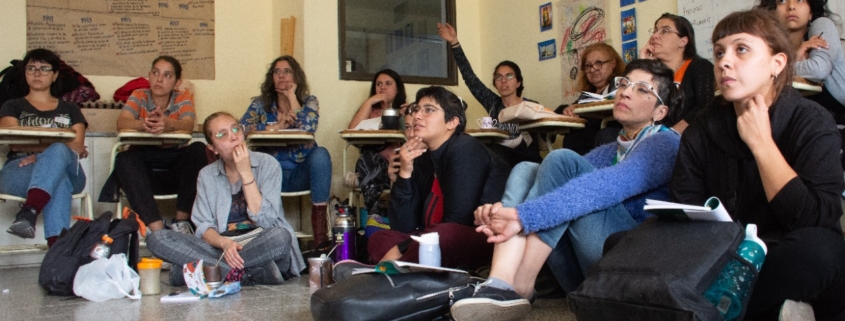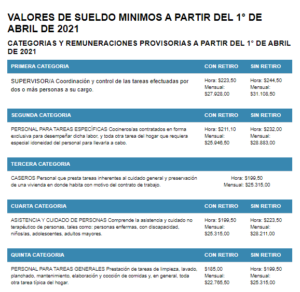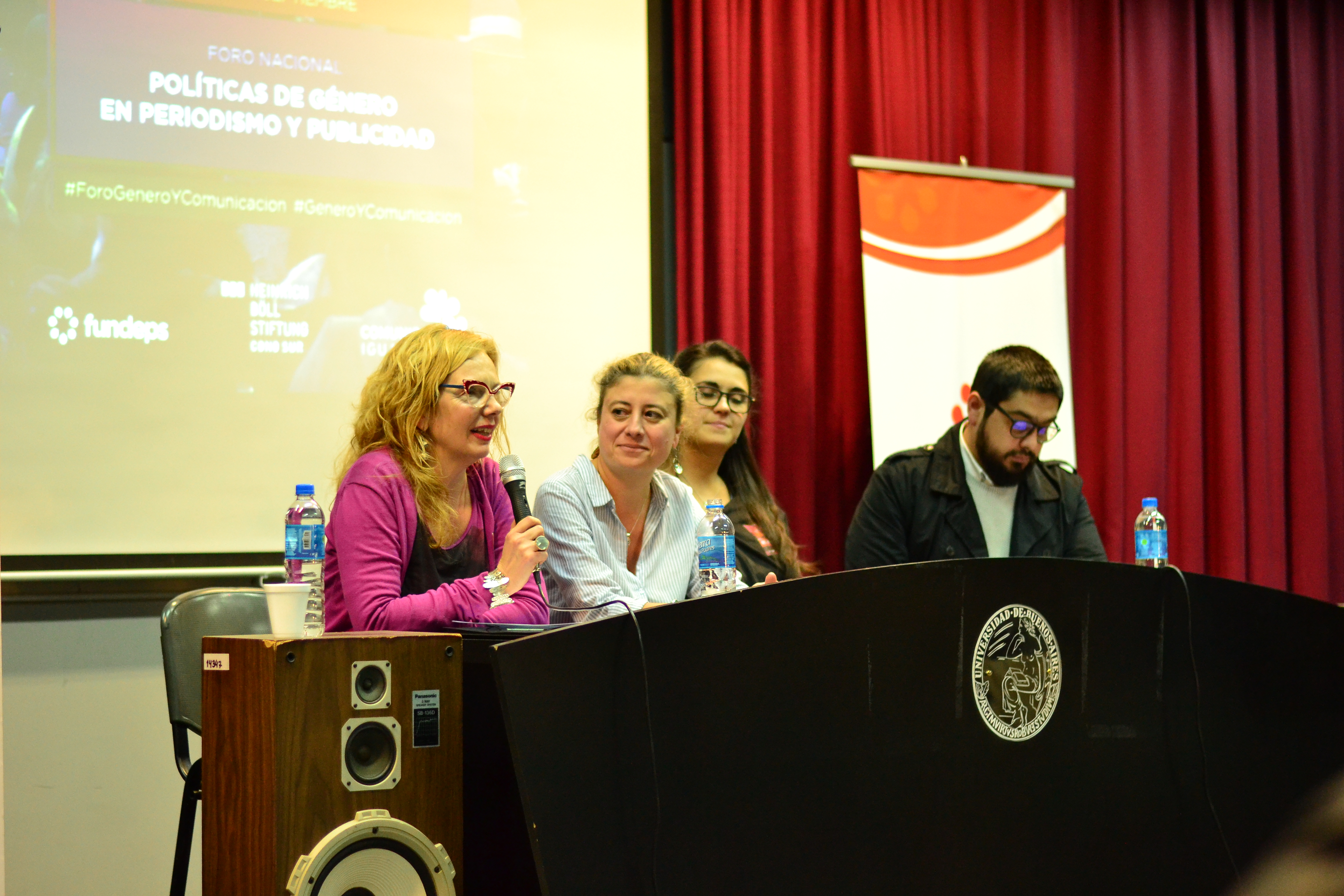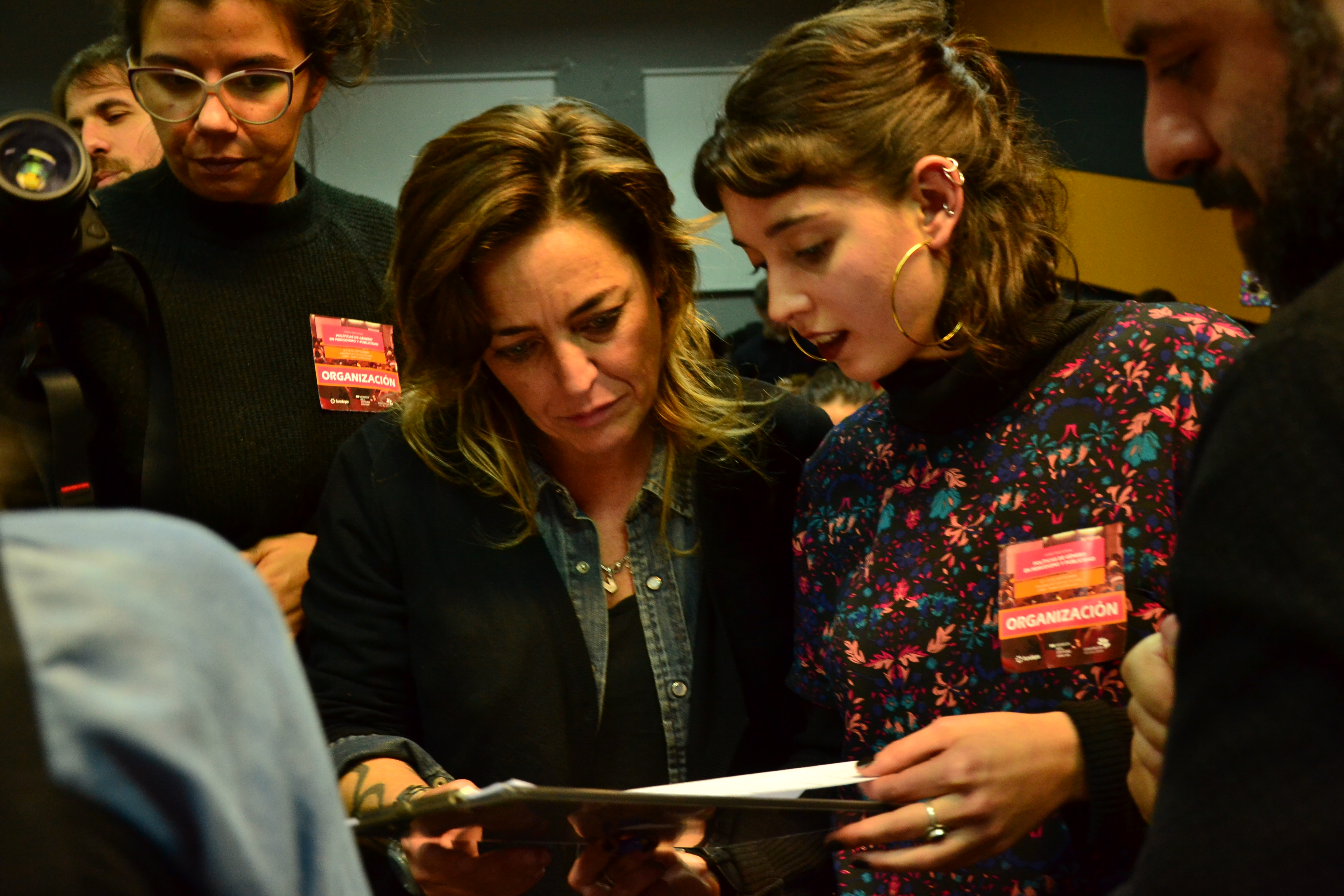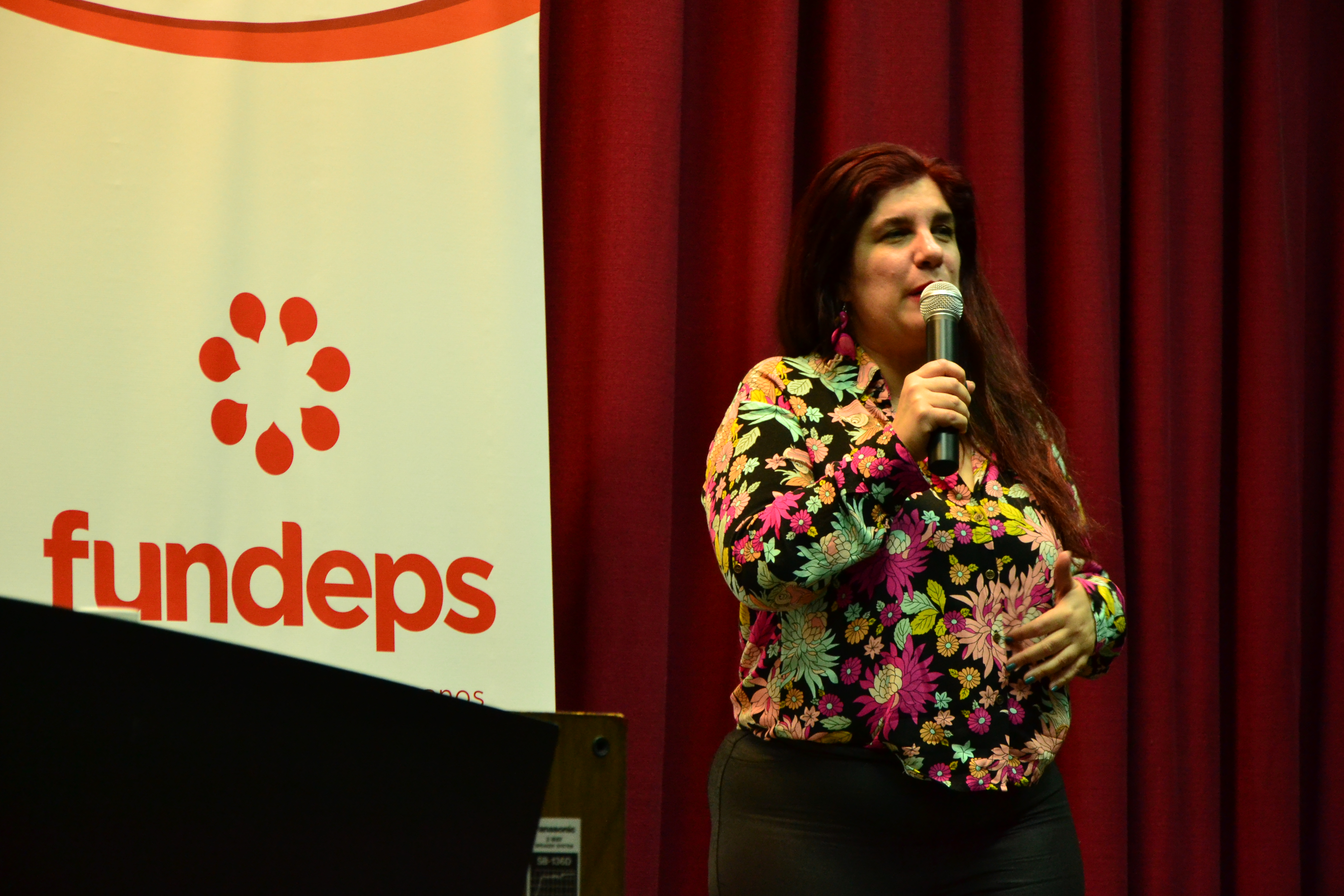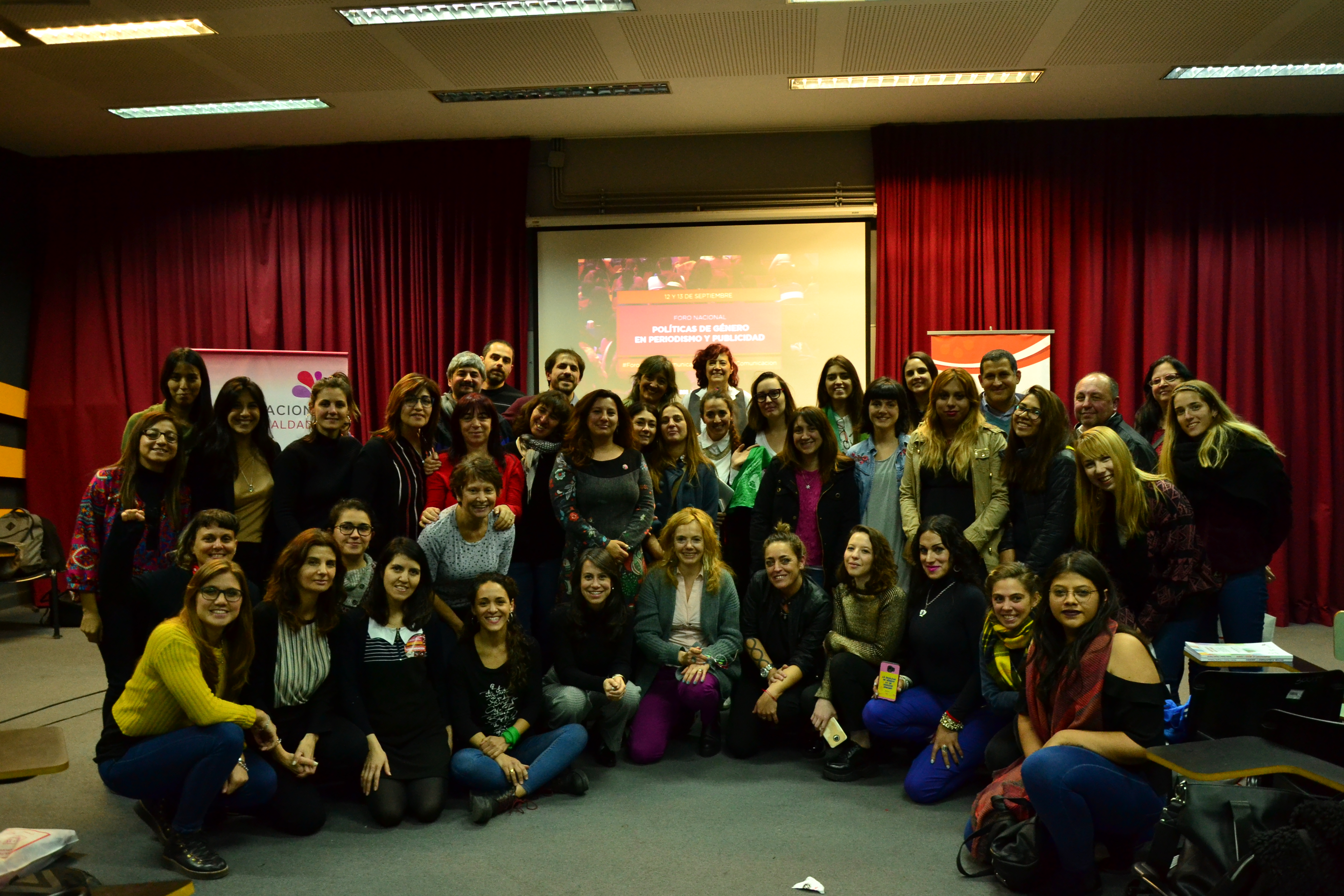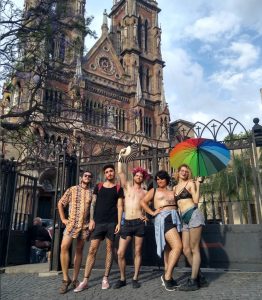Together with the Córdoba Feminist Economy Space and with the support of the Heinrich Boll Foundation, we held the first Provincial Feminist Economy Meeting on September 16 and 17 at the Provincial University of Córdoba. We have the presence of various organizations and self-managed experiences of the Feminist, Popular, Social, Solidarity, and Ecological Economy.
“Below, we offer a google translate version of the original article in Spanish. This translation may not be accurate but serves as a general presentation of the article. For more accurate information, please switch to the Spanish version of the website. In addition, feel free to directly contact in English the person mentioned at the bottom of this article with regards to this topic”.
For two days, self-managed organizations and spaces from other economies shared instances of reflection and discussion around a central axis: Feminist economics and the networks that sustain us.
60 organizations from different locations in the province participated, including neighborhood organizations, enterprises, self-management spaces and women’s groups.
Pending debates, expected meetings
Friday the 16th in the afternoon was the first day that began with the opening of the Meeting. Then, organizations from the province of Córdoba linked to the Feminist, Social and Solidarity, Popular and Ecological Economy presented themselves and shared about their spaces and expectations of the Meeting.
The day closed with an open talk by Analía Ayala and members of the Córdoba Feminist Economy Space, where some guidelines and open debates on Feminist Economy were raised.
The next day, different instances of training, discussion and meeting were proposed through workshops designed by and for the organizations. Months before the Meeting, the members of self-managed organizations were consulted about their training needs and topics of debate in order to jointly create the agenda of workshops that the organizations themselves later dictated.
The day was organized in five workshops, built from the axes proposed by the organizations. The topics addressed were:
- Introduction to the management of social networks by Aylen Corte and Agustina Ramos from Cortezas del Chañar. Workshop where a small theoretical – practical tour was seen to manage the Instagram of an enterprise. They talked about brand identity (logos, color palette, fonts) and tips to create content and not die trying. In addition, they shared planning tools, aesthetics, valuable content and ideas to upload the algorithms.
- Self-management brings us together and cooperativism brings us together, energized by Guadalupe Fernández and Julieta Ferreyra from El Resaltador. Workshop that started from the premise “Self-managed spaces as fundamental actors to design and apply, together with the State, public policies that contain us.” and the question “How to generate networks that survive in this attempt?”
- Transfeminisms and Inclusion: context and experiences of organizations in Córdoba. It was a conversation about the regional and national life context of transvestites, transgenders and transsexuals promoted by ATTTA – MundoSur. The “Diversxs y Segurxs” platform was presented and the actions carried out by ATTTA Córdoba in the framework of trans labor inclusion policies and the challenges still pending were shared.
- Management tools and costing from a feminist perspective. Here, administrative tools were shared that allow ordering and promoting enterprises and organizations. It was energized by Meli Bossio and Estri Quijada.
Weave the nets that sustain us
Throughout the Meeting, the members of the different self-managed spaces were invited to reflect on cross-cutting questions such as: Why bet on alternative economies that put life at the center? What is an economy that puts life at the center? center? What practices in your space do you think are part of the Feminist Economy? These questions opened the doors to pending conversations and to weaving networks among those who bet day by day on fairer and more equitable ways of organizing work and production.
By way of closing and celebration, a fair was held in which the self-managed spaces that were sharing and building collectively during the two days of the Meeting participated. More than 70 vendors exhibited their products at the fair open to the general public on the UPC campus.
In parallel, Josefina Arroyuelo gave a self-defense workshop in the open air. Finally, the Naciente Candombe collective musicalized the space with drums, bass drums and dance.
Author
Irene Aguirre
Contact
Cecilia Bustos Moreschi, cecilia.bustos.moreschi@fundeps.org

